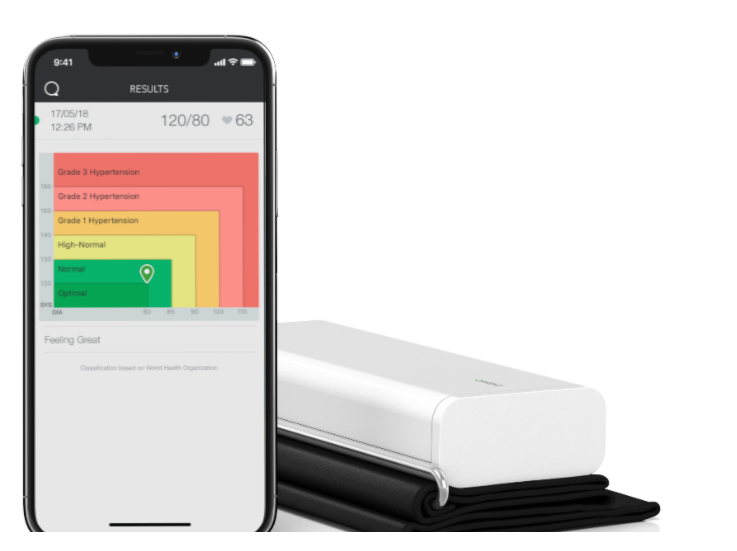
The weather is good today

The weather is good today

Cholesterol is a substance found in your blood that your body naturally makes. You need it to build healthy cells.
You’ve probably heard about “good cholesterol” and “bad cholesterol”. But what does that mean? LDL (low-density lipoprotein) is the “bad” kind. It can lead to fatty build-up in the arteries, and may increase chances of suffering from a heart attack or stroke. HDL (high-density lipoprotein) is the “good” kind of cholesterol and can help protect you against those things.
If your cholesterol levels get too high, it may increase your chances of developing heart disease. The good news is that cholesterol can be managed through diet, regular exercise, and prescribed medications.
Your body produces all the cholesterol you need, but eating certain foods may bring more of it to the table. These include food groups like red meat, poultry, and dairy. Other things that are high in saturated fats and oils, such as chocolate, coconut milk and cake, can contribute significantly to high cholesterol levels.
High cholesterol food usually equals higher fat. So if you can, choose healthy unsaturated fats like those found in olive oil, nuts, and avocados. Rethink your diet to include more fiber, such as oatmeal or beans. Cholesterol is the proof—you are what you eat.
When it comes to lowering cholesterol levels, activity goes a long way. Find forms of exercise you like and stick with your program. A good starting place is 150 minutes a week (about 20 minutes a day) and go from there. But don’t stress too much about the numbers—just keep on moving.

People with high cholesterol may be prescribed medications to help lower their cholesterol levels. The most common of these are called statins. By blocking specific enzymes, statins block the production of cholesterol in the liver so less of it is released into the bloodstream.
High cholesterol itself has no symptoms—it can only be detected through a blood test. So regular screenings are important for everyone. And the older you are, the more often you should get checked.
According to the National Heart, Lung and Blood Institute (NHLBI), the first cholesterol screening for an average person should happen between the ages of 9-11, and every five years after that.
NHLBI recommends cholesterol screenings by age:
Again, diet and exercise are two proactive things you can do to keep cholesterol levels down. Certain medical conditions may also increase levels, including diabetes, chronic kidney disease, and HIV/AIDS. Additionally, some medications may raise cholesterol levels, including those for high blood pressure, cancer, and irregular heart rhythm.
There are ways to keep your cholesterol in check, and many are in your control: Don’t smoke, exercise daily, eat a healthy diet with plenty of vegetables, and try to maintain a healthy weight. You can take charge of your heart health with everyday lifestyle adjustments. Talk with your doctor to learn more about your cholesterol levels and management tips tailored to your lifestyle.
Sources:

Atrial fibrillation (AFib) is an irregular heartbeat that occurs when the upper chambers of your heart beat out of coordination with the lower chambers, which causes your heart to beat either too slowly or too quickly. It is the most common heart arrhythmia, affecting nearly 3 million people in the US.
People with AFib are 5 times more likely to have a stroke and may also develop blood clots, heart failure, and other heart-related complications. If you experience AFib, it may feel like your heart is fluttering or skipping a beat. AFib can be detected on an electrocardiogram (EKG) , which records the electrical activity of your heart.

Common symptoms of AFib may include heart palpitations, shortness of breath, extreme fatigue, or feeling dizzy or lightheaded. However, some people may not notice any symptoms, which makes AFib hard to detect outside the doctor’s office or without a personal EKG like KardiaMobile.
Because AFib can be hard to detect, and symptoms aren’t always predictable or noticeable, it’s helpful to have a personal EKG device that allows you to check in on your heart whenever you feel a symptom. Devices like KardiaMobile can record medical-grade EKGs and detect AFib from home, making it easy and convenient to manage your heart health. KardiaMobile is FDA-cleared to detect AFib and other common arrhythmias, including premature ventricular contractions (PVCs), Tachycardia, Bradycardia, and more. You can record unlimited EKGs, whether you’re experiencing a symptom or just want to check in on your heart.

Early detection and management of AFib is not only important for your heart health, but your overall health as well. Atrial fibrillation is commonly treated and managed in these ways:
People with AFib may be prescribed medication to help control the heart’s rhythm and rate.
In some cases, an interventional procedure called an ablation may be performed to prevent further atrial fibrillation.
A heart-healthy diet, frequent exercise, and reduced stress play important roles in the management of AFib.
KardiaMobile can help with the early detection of AFib, which may prevent serious heart complications.
Your risk of developing atrial fibrillation can be affected by several different factors. Common risk factors include:
Hypertension, or high blood pressure, accounts for 1 in 5 cases of AFib.
Smoking may increase your risk of AFib because it is associated with elevated blood pressure and heart rate.
Sedentary lifestyle. Lack of exercise and routine movement may contribute to an increased risk for developing AFib.
Heart disease —such as congestive heart failure, congenital heart disease, coronary artery disease, or history of a heart attack—may increase your risk of AFib.
Age The older you get, the more likely you are to develop AFib.
Family history. Your family history may contribute to your risk of developing AFib.
AFib is a serious heart condition and a leading cause of stroke. But with early detection and proper management, it can be treated. When it comes to your heart health, your doctor is your best resource. Talk to them about any symptoms you may be experiencing and then learn more about how KardiaMobile can help you stay on top of your heart health from home.
Sources: https://www.heart.org/en/health-topics/atrial-fibrillation/what-is-atrial-fibrillation-afib-or-af